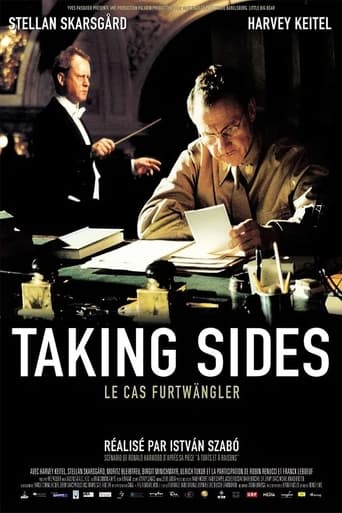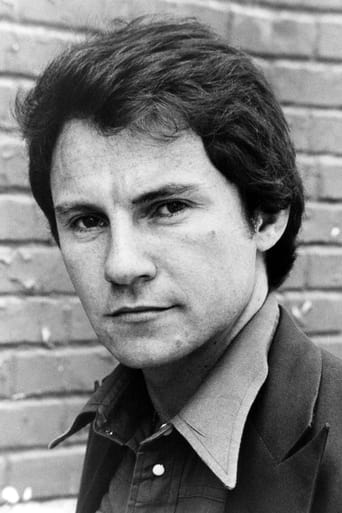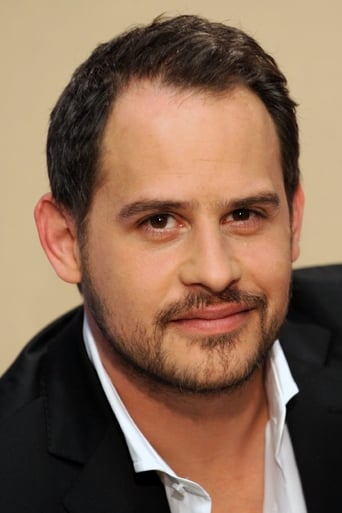Taking Sides (2002)
One of the most spectacular and renowned conductors of the 1930s, Wilhelm Furtwangler's reputation rivaled that of Toscanini's. After the war, he was investigated as part of the Allies' de-Nazification programme. In the bombed-out Berlin of the immediate post-war period, the Allies slowly bring law and order to bear on an occupied Germany. An American major is given the Furtwangler file, and is told to find everything he can and to prosecute the man ruthlessly. Tough and hard-nosed, Major Steve Arnold sets out to investigate a world of which he knows nothing.
Watch Trailer
Cast
Reviews
Very best movie i ever watch
A movie that not only functions as a solid scarefest but a razor-sharp satire.
Each character in this movie — down to the smallest one — is an individual rather than a type, prone to spontaneous changes of mood and sometimes amusing outbursts of pettiness or ill humor.
A terrific literary drama and character piece that shows how the process of creating art can be seen differently by those doing it and those looking at it from the outside.
My favourite film about collaboration with Kieslowski's 'No End', in which a weary lawyer tells an opponent of the state "You decided to collaborate the day you decided not to throw yourself in front of a tank." The truth is, that faced with evil (and poor odds of beating it), only a few adopt a policy of outright resistance. But sometimes life forces one into taking sides; and 'Taking Sides' is the name of this film, about the German conductor Furtwangler and his relationship with the Nazis. It covers the usual ground, with less subtlety than Kieslowski's film, although there are similar arguments: at one point Furtwangler alleges that the American officer trying to indict him for Nazism is blaming him for his "failure to be hanged." In the case of the Nazis, however, the utter wickedness of their government reduces our capacity for sympathy for those who did not resist, which, the film suggests, in Furtwangler's case was at least in part a consequence of his utter devotion to his music: that his compromises were motivated not solely by fear, but also by his professional ambition. What doesn't quite ring true is the slant of the officer's antagonism: he wants to hold Furtwangler responsible more for the German people's collective acceptance of the concentration camps than his own direct collaboration; this is not implausible, but the film would work better if we were presented with his motivation also in personal terms, but it passes unquestioned. And the ending of the film lacks power, again because we don't know enough about this character to wholly share his sentiments at the end of the interrogation. But it's still a strong movie, thought provoking and a reminder of how lucky many of us are not to live in times where we have to make choices on which many lives, our own and those of others, hang.
Major Steve Arnold tells his assistant in one of the bar room scenes to "Grow Up - F----n Grow up", the time has long since passed for equivocation on the Furtwenglers of this world. Notwithstanding the merits or demerits of the film in cinematic terms, these I believe are the most telling words of the entire debate. What if all the singer songwriters who opposed the Vietnam war had wrung their hands in anguish wondering what the right thing to do was? When all the while the draft lottery was proceeding apace. When the noble conductor was wiping his hands at the end perhaps he was trying to wipe away his guilty conscience. There is a time when black and white logic, clear thinking and action are necessary, not the murky greyness of moral duplicity. As Nero fiddled, Rome burned. As Furtwengler conducted - the people in the gas chambers were squealing to accompaniment of the violins in Berlin!
Here is an arty film of the new millennium. One that reflect upon whatever happened in the last century, and one that in fact deals with the favourite theme of the arty films based on the 20th century: the aftermath of the second world war. It is an interesting period to be talking about, particularly when it deals with such a delicate matter as the inquisitions of the people that were suspects of having been members of the Nazi Party. America on one side, the nation that wants to capture all the Nazis, and Russia, that wants to keep the talented ones. In other words, the country of Germany, stunned by what had been the Nazi period, stunned by whatever they had been kept obscure of, being screwed from both sides.Here is a film where you can't take sides, because the filmmaker takes it for you. Szabo makes it very clear that Dr. Furtwangler is not evil. In fact, this is what we think in Music Box by Costa-Garvas, which is why until the end, we must wonder whether Szabo is playing us, fooling us in actually believing in the kindness of strangers. And on the other side of the good side is the Harvey Keitel side, who makes no gimmicks of the fact that he is playing on the evil, tough side.The outcome is not goofy, it's cheesy. Us being told that we are wrong. Us being told by European filmmakers that Americans were bold. Of course, that is probably true. Perhaps Furtwangler wasn't a buddy of Hitler's. But were the Americans wrong in seeking revenge. under such a dubious and biased ligght, we cannot take sides, when we are not given an opportunity to take sides. Keitel's Maj. Arnold hates the Nazis not because of what they did, but because he is brainwashed. And if that wasn't enough to prove his instability, we get his shakiness when he catches his two associates out on a date, and he is angry at the fact that the woman didn't pick him.The film plays out more like a stage play than a film. In fact, the film is based on a stage play. That wouldn't even be so bad, because Skarsgard is really good at playing the guy we must pity and Keitel is really good as playing the guy we must hate. It's all set out for us. The sides have been picked, we have been cheated. This is another film where the filmmaker manipulates our thoughts, which wouldn't even be so bad. But when the film drags on and is sucked dry of inventiveness as this one, it shouldn't be forgiven. In fact, the only parts where the film flows are the interrogatory scenes, that display Maj. Arnold's rude and aggressive methods that are good at drawing out attention. And Skarsgard is good as the helpless victim.The photography is not perfect, strange, because he decides not to move the camera itself so much, and yet, he doesn't take his time to think through the mise-en-scene. I suppose, however, that you could be doing worse, counting that there is no character in the play that is particularly sexually appealing, which is ever so important on the silver screen.WATCH FOR THE MOMENT - When, after the second time, Skargard's character gets up off his seat. He is angry, scared, defeated. He has no chance is succeeding. That is a brilliant performance. Too bad it's an easy performance, for the rest of the film.
Ironically, the main limit of Taking Sides is how it doesn't want viewers to choose which side to take - it's clear who the filmmakers side with.Germany, World War II aftermath: Major Arnold (Harvey Keitel) investigates the involvement of famous conductor Wilhelm Furtwangler (Stellan Skarsgard) with the Nazis. As a tense confrontation between the two unravels, the movie focuses on the moral responsibility of intellectuals who supported the regime.Furtwangler, we learn, used his authority to help several Jews and support the nation with his art; Arnold sees him as morally bankrupt, as he accepted the regime instead of openly condemning it.Skarsgard is exceptional as Furtwangler, playing him as a dignified man who is at the same time humiliated by his plight and proud of his work. Keitel is a great actor, but he is saddled here with a character written as boorish and one-dimensional. The movie obviously sides with Furtwangler - fair enough, but, to make sure viewers agree, the Major is painted in a very unflattering light and comes across as a straw man. It's a cheap shot for an ambitious script.Still, Taking Sides juggles with important questions and the epilogue is powerful, with a broken Furtwangler descending a staircase in an empty building while Beethoven's Fifth plays in the background, and then footage of the real Furtwangler who seems to be wiping his hands with a handkerchief after shaking them with the Nazi authorities.6,5/10





